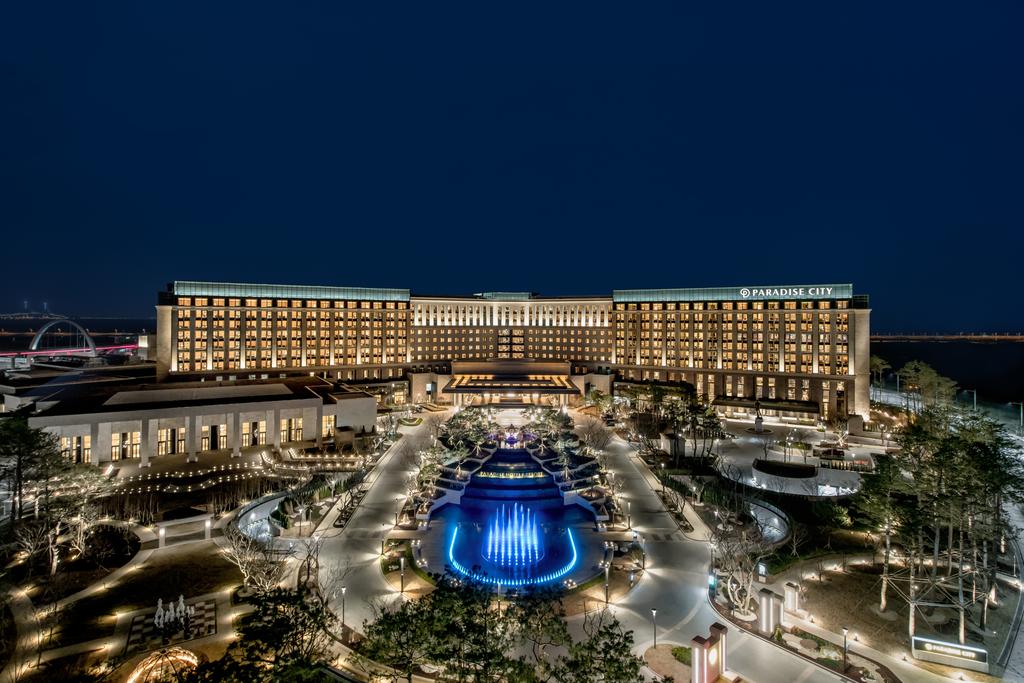South Korea’s Paradise City Casino Falling Short of Utopian Projections
Posted on: August 2, 2017, 03:00h.
Last updated on: August 2, 2017, 01:42h.
Nirvana has not been reached at the Paradise Casino in South Korea, as customer traffic forecasts are not being met at the new $1.12 billion resort that opened in April.

The “foreigners-only” property in Incheon has so far welcomed 310,000 people in its first three months, falling short on projections of 1.5 million visitors in its first year. Though there are still nine months to catch up, these initial numbers have raised concerns.
The massive Paradise City complex, located just minutes from Seoul’s Incheon International Airport, is being developed by South Korea’s Paradise Group and Japan’s Sega Sammy Holdings. It’s the first full-fledged integrated casino resort in South Korea, with more to follow.
High-Occupancy Optimism
Despite the less than spectacular visitation numbers, Paradise City are still confident the resort will succeed. One spokesman told South Korea’s Cosun Ilbo newspaper the positive signs are evident.
“Since the first phase opened, about 90 percent of hotel rooms have been occupied,” the spokesman said. He added that when the second phase of construction is complete, which is currently on pace to open early next year, foot traffic will increase as the resort will then offer more entertainment options, as well as a boutique hotel.
The resort won’t want to rest on its laurels, however, with two additional megaresorts planned for the Incheon corridor soon.
American tribal casino operator Mohegan Gaming has partnered with South Korean chemical company KCC and the Incheon International Airport. Meanwhile, Las Vegas-based multinational Caesars Entertainment has partnered with a Chinese real estate developer. Both are expected to start construction by the end of this year.
Limited Revenue Potential
The hope for investors in Incheon is that together they will achieve a critical mass, creating a touted tourism destination. But the optimism is met with a dose of caution so long as South Korea keeps out its own citizens, limiting revenue potential.
Currently only Kangwon Land, near the site of the 2018 Winter Olympics, about three hours from Seoul, invites resident Koreans to play.
Further complicating efforts to attract foreign customers, however, include unexpected travel restrictions the Chinese government placed on its citizens, two days prior to Paradise City’s opening, coinciding with a softening of restrictions on Chinese travel to Macau.
No comments yet